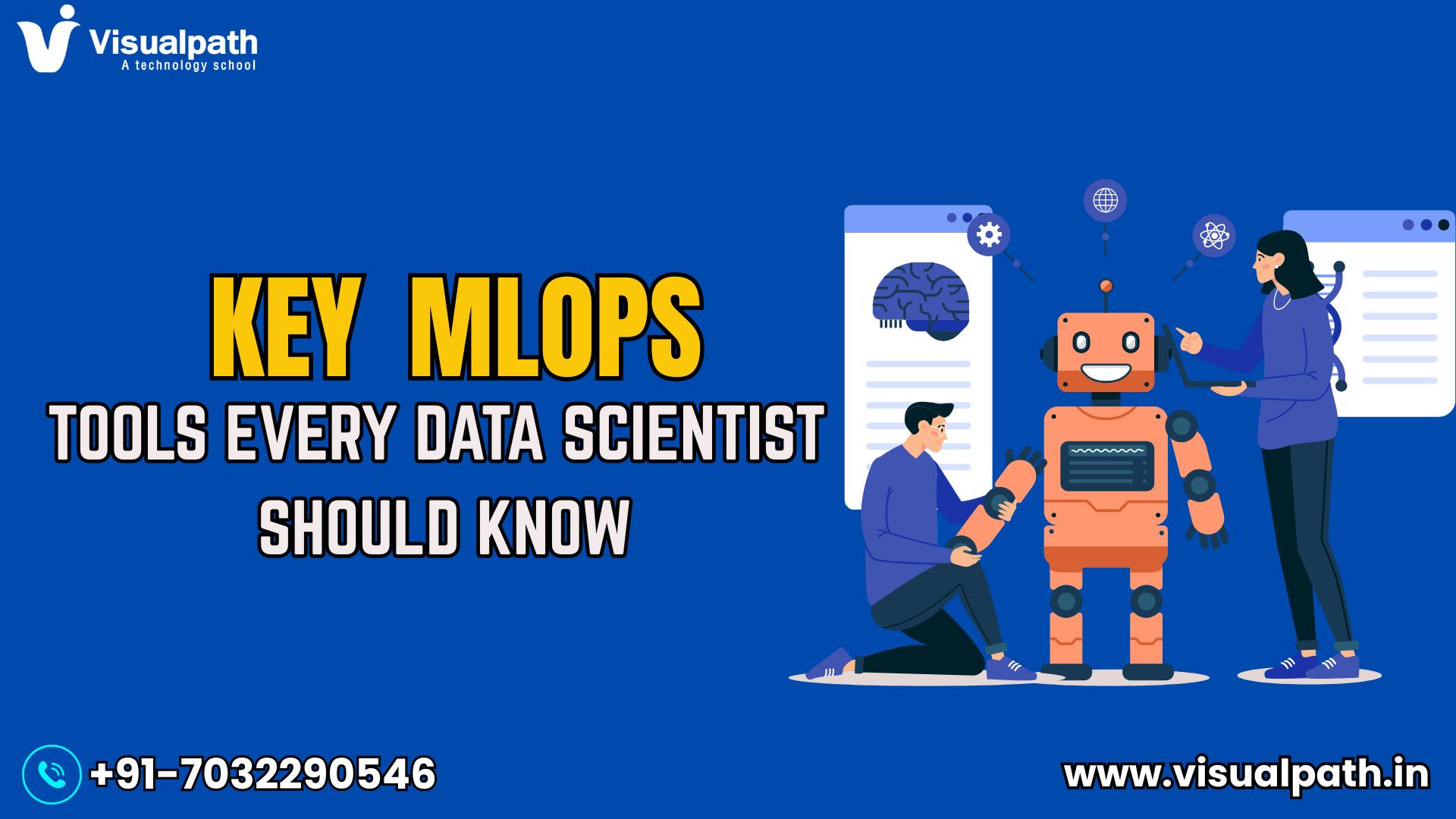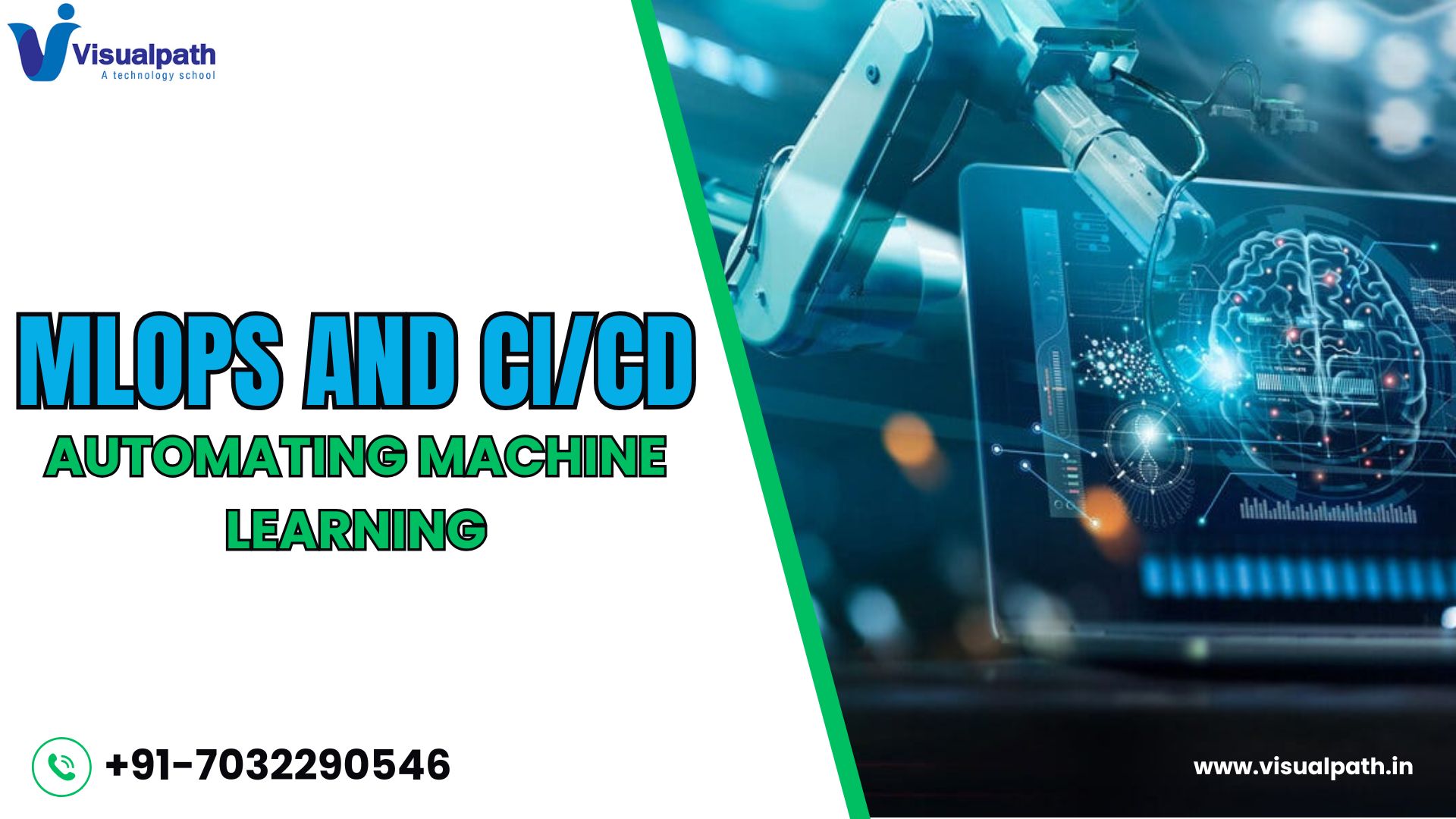MLOps Tools Every Data Scientist must master go far beyond just training models. As machine learning continues to mature, there’s growing pressure on data scientists to ensure their models are production-ready, scalable, and easy to monitor. That’s where MLOps comes into play. Combining the practices of DevOps with the unique needs of ML workflows, MLOps enables teams to manage the entire lifecycle of a machine learning project—from data preparation to deployment and beyond.
As the demand for these skills grows, many professionals are now opting for MLOps Training to gain practical experience with these essential tools.
1. MLflow
MLflow is an open-source tool that helps manage every stage of the machine learning lifecycle, from experimentation to deployment. It provides experiment tracking, model packaging, reproducibility, and a model registry. Its flexibility and compatibility with multiple ML libraries make it one of the most widely used tools in the MLOps toolkit.
2. Kubeflow
Kubeflow helps deploy and manage machine learning workflows on Kubernetes. It supports pipeline automation, hyperparameter tuning, and distributed training. It’s a great choice for teams working in cloud-native environments looking to scale their machine learning operations efficiently.
3. Apache Airflow
Apache Airflow is a workflow scheduler that helps automate tasks such as data preparation, model training, and deployment. It uses directed acyclic graphs (DAGs) to manage complex workflows and is highly customizable, making it a favorite among ML teams.
If you’re looking to get started with these tools in a structured way, enrolling in an MLOps Online Course can help. These courses typically cover tool integrations and pipeline orchestration with real-world examples.
4. Data Version Control (DVC)
DVC enables version control for both datasets and machine learning models, ensuring reproducibility and collaboration across ML projects. It works well with Git, allowing teams to track data and model changes over time. This ensures better collaboration and reproducibility across projects.
5. TensorFlow Extended (TFX)
TFX is a robust production platform built by Google to deploy and manage ML models. It offers features for validating data, transforming inputs, analyzing models, and managing deployment. TFX is ideal for TensorFlow users aiming to move quickly from prototype to production.
6. Metaflow
Developed by Netflix, Metaflow simplifies the process of building and running machine learning workflows. It abstracts the complexity of infrastructure, so data scientists can focus on model development and experimentation.
7. Seldon Core
Seldon Core is an open-source platform that helps deploy and monitor ML models on Kubernetes. With features like A/B testing, logging, and real-time metrics, Seldon is well-suited for production environments where performance and reliability matter.
As organizations push toward scalable AI, familiarity with these tools is becoming a must-have. They not only streamline workflows but also reduce deployment risks and promote collaboration between data science and engineering teams.
To gain hands-on experience with real-world MLOps projects, consider exploring an MLOps Online Training program. These are designed to bridge the gap between theory and production, equipping you with skills that today’s employers value.
Conclusion
MLOps Tools Every Data Scientist. The future is not just about building smarter models—it’s about deploying them efficiently and maintaining them over time. Tools like MLflow, Kubeflow, Airflow, DVC, TFX, Metaflow, and Seldon empower data scientists to meet the growing demands of modern ML workflows. By learning how to use these tools effectively, you can take your ML skills to the next level and make a bigger impact in your organization.
Trending Courses: DevOps, GCP DevOps, and Azure DevOps




